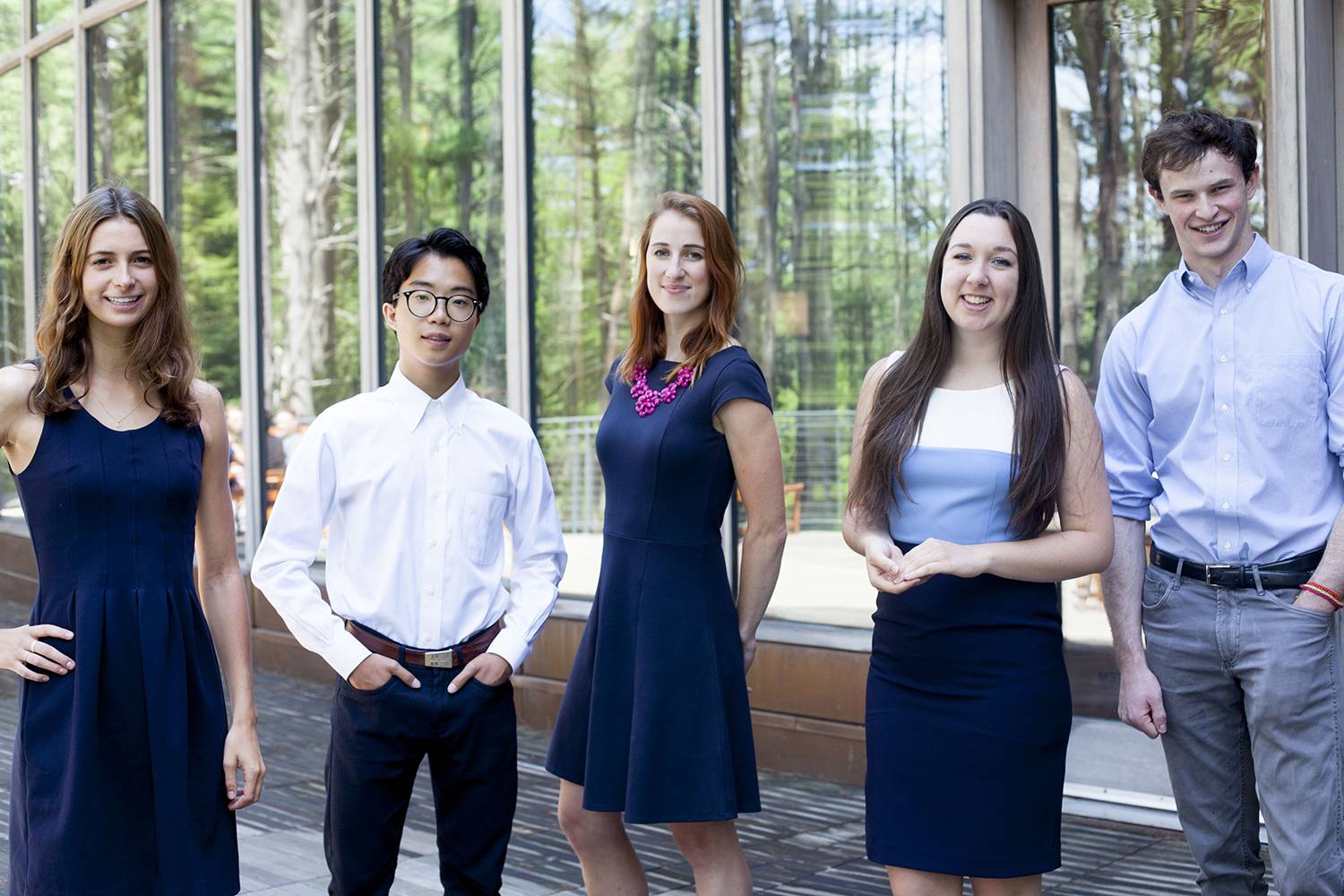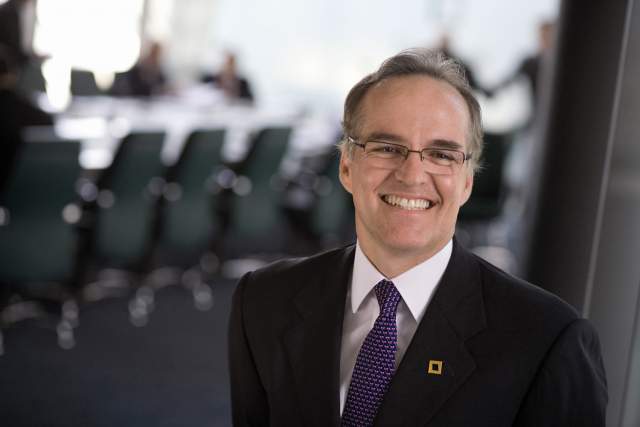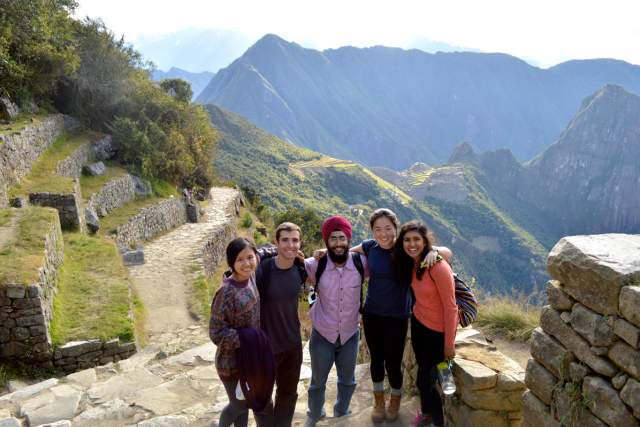Building Young Leaders in Peru
The 2017 Paganucci fellows completed a high-impact consulting project for Peru Champs

The program offers undergraduates global experiential learning, personal leadership development, and social entrepreneurship.
Two years ago, Carlos Rodriguez-Pastor T’88 spoke movingly at the Tuck Investiture ceremony about his decision to improve the education system in his home country of Peru.
He was tired of seeing Peru at the bottom of the education rankings, and saddened by the way the poor schools robbed Peru of future leaders. So he used the financial and organizational power of his conglomerate, Intercorp, to start Innova Schools: an affordable, innovative, and high-quality private school system targeted to the emerging middle class.
In the audience that day was Richard McNulty, the faculty director of the Paganucci Fellows program at the Tuck Center for Leadership. The Paganucci Fellows Program offers select Dartmouth undergraduates an intensive education in global experiential learning, personal leadership development, and social entrepreneurship. The program is named in honor of the late Paul Paganucci D’53, T’54—a former director of the Sherman Fairchild Foundation who taught for many years at Tuck and also served as associate dean at Tuck and as vice president of finance and treasurer for Dartmouth. In keeping with Paganucci’s legacy of selflessness and business success, the Fellows program supports Tuck’s efforts to study complex social issues and the ways in which businesses can create positive social and financial value.
When McNulty heard Rodriguez-Pastor describe Innova Schools, which has a mandate to be a profitable subsidiary of Intercorp, he thought it could someday be the perfect subject of a Paganucci Fellows project. This past June, that day finally came. That’s when 2017 Paganucci fellows Jessie Colin D’18, Jeffrey Fastow D’18, Meghan Grela D’17, Aaron Lit D’18, and Colleen O’Connor D’19 began a consulting project for Peru Champs, a leadership development program at Innova Schools. Peru Champs provides need-based scholarships for students to attend Innova Schools, and offers specialized leadership training so recipients can make a smooth transition to higher education and a career. There are currently 1,994 Champs spread out among the 41 Innova Schools. In order for the program to grow, it needs to increase its funding. That led to the Paganucci fellows’ main task: to advise Peru Champs on how to become more financially sustainable, and to craft an impact narrative that can show potential donors how much of a difference the program makes to students and their communities.
Those marching orders weren’t obvious when McNulty first met with the executive director of Peru Champs, Alberto de Cardenas T’04 late last year. In order to flesh out the focus and scope of the project, McNulty enlisted T’17s Brian Cook and Billy Noiman to examine the possibilities, a job that qualified as an independent study for graduate course credit. Cook and Noiman worked on the project in Hanover and in Peru throughout the spring, and partnered with de Cardenas to create a learning opportunity that could have a real impact on Peru Champs. That initial work was invaluable. “When the fellows started, on the first day they met with Billy and Brian,” said McNulty. “It really kick-started the project for them, and on the Peru Champs side too.”
The fellows began the summer by learning as much as they could about Peru Champs, and created an issue tree to better understand what problems they were solving and how best to approach them. At the same time, they studied how non-profits operate, and best practices in donor outreach and grant writing. During this process, they spoke with many Tuck professors and staff members, who opened their doors to the Fellows and provided key insights. “Once we understood the donor landscape and the grant landscape, as well as the broader education landscape in Peru in general, that provided a very good background for understanding how Peru Champs fit into the picture,” said Fastow, a philosophy and economics major from Houston, TX.
On July 6, the fellows set off for Lima, Peru on a 14-day trip that combined consulting, learning, and cultural activities. Immediately upon their arrival, they attended the annual closing ceremony for the Peru Champs leadership program, where they got to meet dozens of Champs and their parents. In all, they conducted 70 interviews in Peru and met with the CEO of Disney Peru, the CEO of Innova Schools, and a wide variety of other experts and practitioners. They also visited the ancient cities of Cusco and Machu Picchu.
When the fellows returned to Hanover and reviewed what they had learned in Peru, they decided to adjust the project scope. In the beginning they had focused on how to use grant funding to make Peru Champs more financially sustainable. But when they met with the students and saw the potential ways to frame the impact of the program, they realized they could craft an impact narrative that could help Peru Champs secure corporate and individual funding. “That was an incredible learning experience,” said O’Connor, an Asian and Middle Eastern Studies major from Buffalo, NY. “We didn’t have to stay with the question the client initially wanted us to explore. We could kind of make it our own, based upon what we thought. That fluidity was empowering.”
In mid-August, the fellows submitted their final deliverable to de Cardenas: a detailed presentation and a succinct impact narrative. He began using the narrative right away to court funding from major corporations as well as the International Development Fund and the World Bank. “My expectations were very high, because I know the quality of Dartmouth students,” de Cardenas said. “But overall, my expectations were surpassed by far. Everything they did was very helpful.”
After the fellows’ formal presentation to de Cardenas, the group brought him to a rope swing on the Connecticut River near campus. It was an opportunity to blow off some stress from the project, and bond a little more with de Cardenas. It also momentarily changed the power dynamic of their relationship. “As intimidated as we were by him,” said Colin, “he was a lot more intimidated by the rope swing.”

